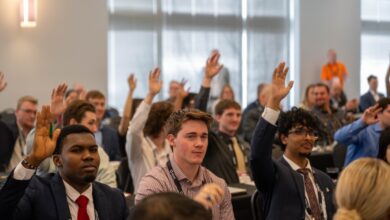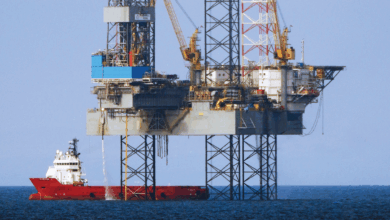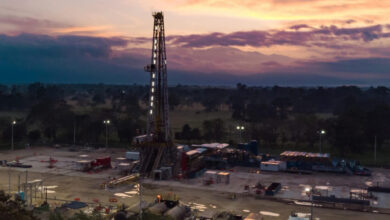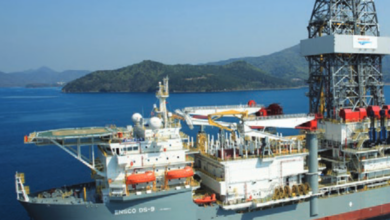Oil & Gas UK’s Webb urges industry employees to step up, speak out
By Alex Endress, Editorial Coordinator
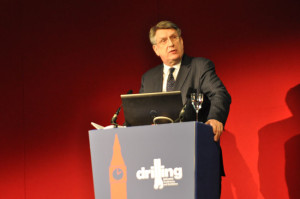
In the court of public opinion, the portrait painted of companies in the oil and gas industry is often not a pretty one. Indeed, “the views of the average man and woman in the street about the typical oil company is a powerful, rich, anti-competitive, scheming, misogynist type of organization, which is careless on both safety and the environment,” Malcolm Webb, CEO of Oil & Gas UK, said. It is the drilling industry’s responsibility to change that stereotype through increased communication with the public, Mr Webb said during his keynote address at the 2015 SPE/IADC Drilling Conference in London on 17 March.
“ ‘No one understands us, and everyone hates us’ typifies the view of many who work in the industry. Unfortunately, I would say that, broadly speaking, they’re right,” Mr Webb said. “We’re often portrayed as a major threat to the very existence of all human and animal life on this planet.”
To combat these negative public perceptions, he continued, “those who work in the oil and gas industry must come out of our shells and communicate with people at all levels about the importance of what we do and the good which our work produces.”
In the UK, for example, the upstream industry provides nearly a half-million well-paid jobs. “Frankly, all of those people should be advocates,” Mr Webb said, adding that it’s naïve to think oil and gas can be completely replaced by renewable energy within the next 30 years. “In truth, dispensing oil and gas within such a time frame is a practical impossibility… The fact is that replacing very efficient natural gas with electricity as the main heating of our homes here in the UK – about 80% of our homes in the UK are heated by natural gas – would require tripling the size of the UK national electricity grid,” Mr Webb said.
He also questioned whether opponents of the oil and gas industry actually know the difference among the various type of fossil fuel – coal, oil and natural gas. They’re “completely overlooking the fact that one fossil fuel – natural gas, which is luckily in abundant supply – has the capability of easing, not increasing, the global warming challenge by substituting for coal.”
To encourage a unified communication approach, Mr Webb said companies should partner with “sensible majority groups” as opposed to political extremes. “Organizations such as the SPE and IADC are absolutely excellent examples of the organizations we should be working closely with on this.”
“Furthermore, I believe we should be careful to not be cast as deniers in the global warming debate. Of course, the science is never done, but for now, the part of the scientific community arguing that anthropomorphic global warming is a reality have the better of the debate. To argue otherwise would be counterproductive. We need to be seen for what we are – a force for good and trying to be a part of the answer, not the problem,” he said.
Mr Webb said oil and gas companies should organize themselves the way green NGOs have done – with a unified approach. He pointed to the UK as a region that still needs better organization for a more collective approach to public engagement. He called the creation of Oil & Gas UK “a tremendous move in the right direction” but also said it wasn’t enough. “We still have a plethora of other national industry associations, even in the upstream. Frankly, this is somewhat wasteful, distracting and confusing. My message is that we need one UK petroleum institute which embraces all of the offshore and onshore E&P industry, as well as the midstream and the downstream.”
He said it would be important for this organization to focus on oil and gas specifically, not energy in general. “The focus has to be on the place of oil and gas in the energy mix. It’s a mistake to believe that we can do that within an energy association or energy institute. I’m afraid we’ll just end up fudging the issues.”
“In my opinion, the oil and gas industry has been losing the battle on energy policy formation in the UK and across Europe for quite some time now. As a result, we’re in danger at both a national and a European level of seeing our industry damaged. In the industry, we have a particular responsibility, both to our industry and to society generally, to turn this around,” Mr Webb said. “To do that, however, we are going to have to meaningfully communicate with the general public, their political representatives and other opinion formers. That will demand very substantial effort from all of us, working collaboratively with one another and with industry organizations.”

